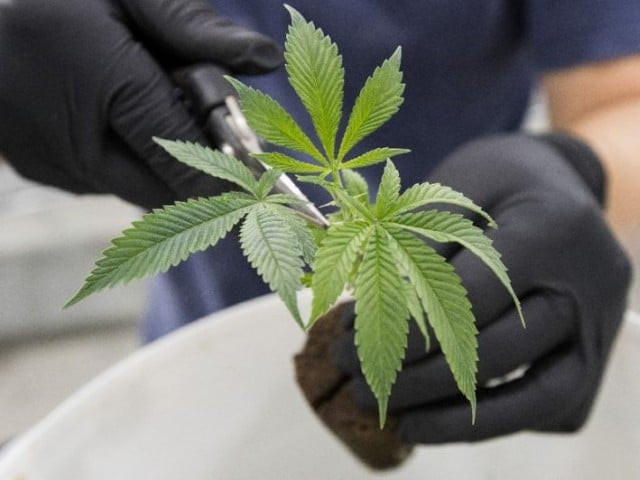Canada prepares to legalise cannabis
After Uruguay, Canada will be the second country to legalise the herb

Canada will become the second country to legalise weed. PHOTO:AFP
From October 17, Canadians will be allowed to grow, possess and consume marijuana for recreational purposes--five years after Uruguay passed pioneering legislation on the issue.
Derivative products such as edibles, cosmetics and e-cigarette products containing pot will not be allowed until 2019.
Dubai jails Indian expat for growing cannabis at home
But nonetheless, legalization is expected to boost the Canadian economy, generating $816 million to $1.1 billion in the fourth quarter--without taking into account the black market, which is expected to account for a quarter of all joints smoked in Canada, according to Statistics Canada.
Statistics Canada says 5.4 million Canadians will buy cannabis in legal dispensaries in 2018--about 15 percent of the population. 4.9 million already smoke. And the world will be watching how Canada gets on.
"There is a lot of interest from our allies in what we're doing," Trudeau, who has admitted to smoking cannabis himself a handful of times, told AFP in May.
"They recognize that Canada is being daring... and recognize that the current regime (of prohibition) does not work, that it's not preventing young people from having easy access to cannabis."
Canada lawmakers vote to legalize cannabis
That's because even though the cannabis ban, in force since 1923, was overturned by the federal government, how legalization plays out in practice has been left to Canada's 10 provinces and three territories to decide.
Several have already said they will not fully implement the law.
For example, even though federal law will permit each household to grow up to four cannabis plants, central Manitoba and Quebec in the east say they will ban it--and go all the way to the Supreme Court over the matter.
Like with alcohol and tobacco, the question of legal age also falls to the provinces. Nineteen seems to be the standard, but it is 18 in Alberta--while Quebec, whose new government will enter office the day after legalization, wants to raise the age to 21.
With regards to sales, some provinces such as Quebec will implement a public monopoly--while others, including Ontario and Nova Scotia, have decided to trust the market to the private sector.
As for law enforcement, federal police will be ordered to abstain for 28 days before working, as will police in Toronto.
Officers in Montreal, however, are simply asked to not show up to work high.
Another issue for the provinces to mull over is open consumption, with Montreal deciding to impose the same rules as those for tobacco-- hile people in other provinces will have to light up at home.



















COMMENTS
Comments are moderated and generally will be posted if they are on-topic and not abusive.
For more information, please see our Comments FAQ